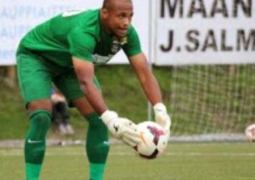
The Minister of Local Governments and Land has said that the Mansakonko Area Council (MAC) is not as poor as people perceive it to be.
He said the council has at its disposal the required potentials to represent the government’s development agenda in the Lower River Region.
Momodou Aki Bayo, accompanied by three other cabinet ministers, was addressing the newly elected councillors of the Mansakonko Area Council during their swearing-in ceremony at the council chambers on Monday.
According to him, the problem with many area councils is the spending on non-priority areas.
“What disturbs many types of councils is that their funds are not invested in areas they need to focus their attention,” he said.
On the role of the council, he said Mansakonko needs a new market, water supply and good health facilities among other key projects on which the elected members have advantage to retain the total control of the council by the ruling party.
“When you do great job you will become unopposed and that’s a better chance for the APRC government to realise its plans,” he said.
“If Kuntaur Area Council in the Central River Region can make it with the few income sources it is endowed with, why not Mansakonko,” he queried.
This council, he said, was regarded as the poorest in the past few years, but today the council has no electricity arrears with NAWEC. It also pays its staff and maintains a good bank account.
His remarks came at a time of increased perception among the people of the Lower River Region and beyond that the Mansakonko Area Council is more often than not experiencing serious financial constraints.
The council, according to its officials, has not been able to pay salaries of its staff for a couple of months, while youth groups continue to cry fowl on lack of attention on most of their important support appeals from the council.
In their simple quest for explanation, domestic tax and duties payers say it is not possible for the council to go bankrupt.
“I do not delay payment of my tax when the Alikalo calls for it. Not even for the chief to know about it talk less of the council,” a landlord in Soma told this reporter.
Like many other businesspeople within the commercial town of Soma, a manager of a new water factory near the central market says: “Business is okay. You can make money well but you have to share it with the area council. If not you dare not try it.”
Foday Camara, the outgoing chairperson of the Mansakonko Area Council, told The Point the council has a good revenue base but compared to the development desire of the region, there is a need for improvement.
He recalled that when he took over the chairmanship in 2008, “the council was surviving on bank overdraft”.
There was no functional vehicle for the council errands and there was no strategic plan in place for the running of the council, he said.
However, he noted, the council was able to make a counterpart payment in the “five million dalasi new Soma market project to Gamworks, purchase new pickup and a tractor for the council and give educational scholarship to sixty (60) students at all levels.”
According to the newly elected chairperson of the council, Fabakary Sanneh of the Kwinella Ward, the council will experience a turning point in its dormancy.
“We will do so by first of all analysing the field to identify our strength, challenges and opportunities,” he said.
Majula Joof Sanneh, vice chairperson of the council and Councillor of the Kiang Kiaf Ward, said it is the council’s first priority to settle the salary arrears of its staff.
“We will use the available funds from taxes and government subventions to settle the debt owed to the staff before thinking of something else,” she said.



